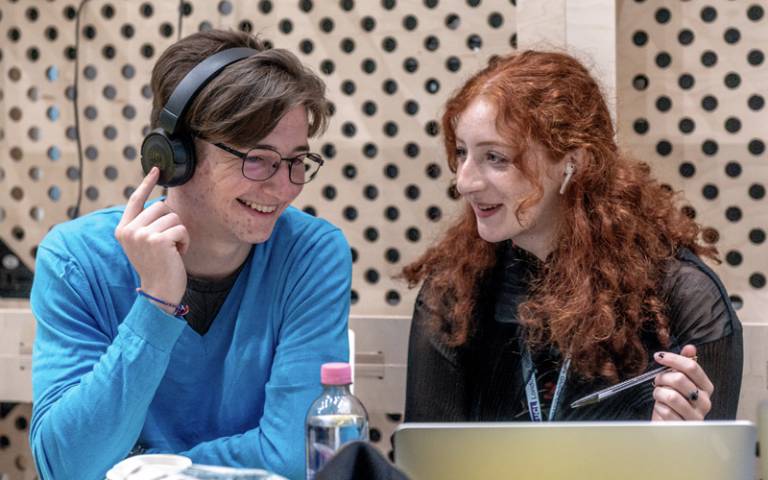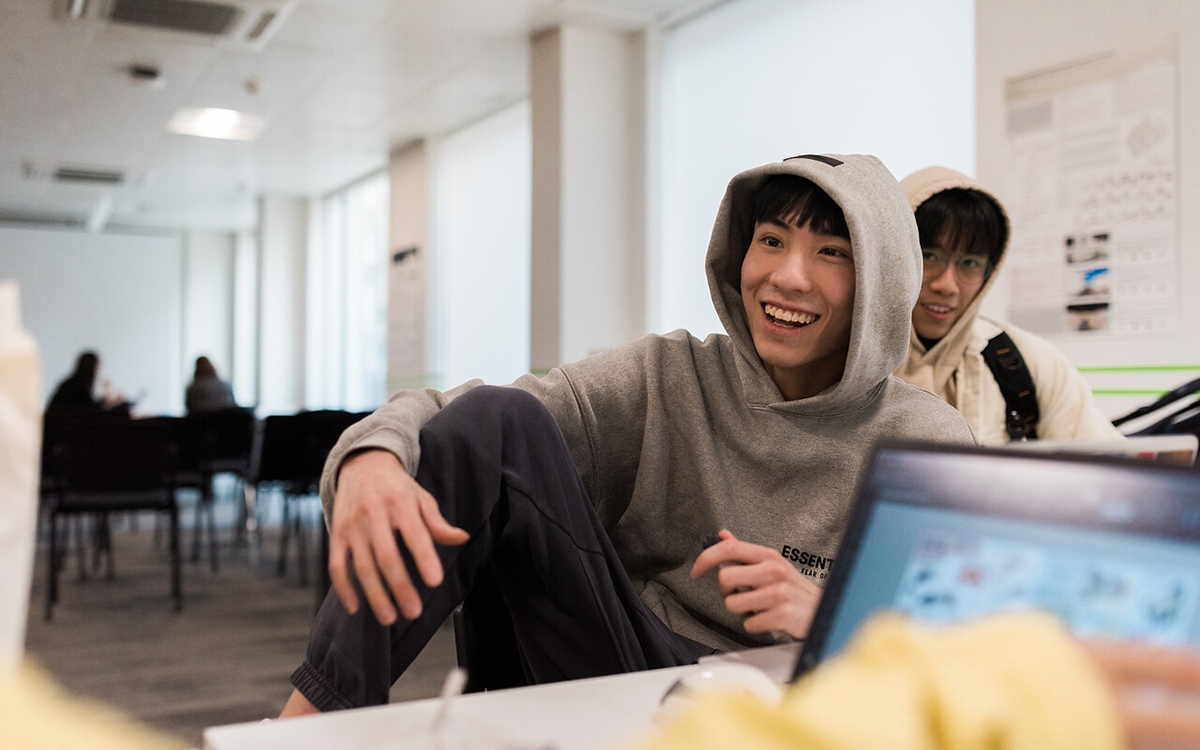Balancing university life at the Bartlett School of Architecture
We’ve all heard of the typical alleged trial of fire approach to architecture schools around the world. Work 20-hours a day, 7-days a week, students sleeping over in the studio only to have a dismissive 5-minute tutorial before starting over again the next morning. The truth is architecture school can have its work-life balance struggles, however, with the proper balance of discipline and self-care, life at the Bartlett is just as enjoyable and enticing as studying anywhere else.
To make the most of university life and being in London, both work and play are equally important as getting the right amount of downtime and sleep. Typically managing two seems doable, yet getting all three can sometimes feel overwhelming, if not impossible. Understanding the right balance is crucial to honing a healthy and fulfilled lifestyle.
Using the studio as a tool for both socialising and productivity
As an architecture student, the bulk of your work will be time spent in the studio. With the Bartlett having a large intake of students, it’s all too easy to power through some work with headphones and miss out on the great social opportunities that the studio has to offer. Considering the quantity of time you can spend at the studio, it’s crucial to make as many friends there as possible. As such, some forms of your work can turn into more of a collaborative discussion. Developing the right studio culture with the right people can completely change the dynamic of your day-to-day life. It’s also good to note that the studio closes at 9:30pm, giving a proper stop to the day of work and allowing you to separate out the spaces where you chill compared to where you study.
 Understanding your limits
Understanding your limits

The nature of working creatively constantly means that productivity is likely to oscillate up and down. On a typical day, I likely spend about five times the time finding a concept to work through compared to the time I actually produce something I could present. Taking these fluctuations as a natural part of the week rather than beating yourself into a cycle of more creative blocks is a crucial mindset to have from the start of the course. The solution is easy, take a break. Nine times out of ten, to stop staring at a blank screen and instead, going out to the pub, seeing a compelling gallery or eating some well-prepared food, all in the company of friends, can mean breaking the unproductive cycle and giving a new perspective to the project. Most importantly, be kind to yourself and know when to put the pen down.
Taking (almost) every chance you can to do something new
In the first year, it’s crucial to get out and explore the possible places and relationships that London has to offer. When work is piling up every day, the likelihood is that you won’t have the luxury of taking a weekend off. With this in mind, taking the opportunities that arise is super important to enjoying life at university. Sometimes before a deadline or when running slightly behind in a class, having a more regimented routine is important to get the work done, however, in a normal week the most impulsive plans can often be the best. Taking up offers for nights out, lunches with friends or even a society you’ve been interested in can break up the study and let you have a better perspective on the whole of university rather than just the work. This means working hours don’t have to control your life, they can be more flexible and fill in the time when you don’t have much else to do.
Adapting to student life is a challenge in itself and the longer you study, the faster you get at working and the more boundaries you put around your free time. At the start just remember to give it your all, know when to take some time out and most importantly find a schedule that allows you to fully enjoy your time at UCL.
About the author
Toby is a second-year MSci Architecture student at the Bartlett School of Architecture. He plays in a couple of bands in both the north and south of England, alongside studying towards becoming a fully trained architect.

 Close
Close


